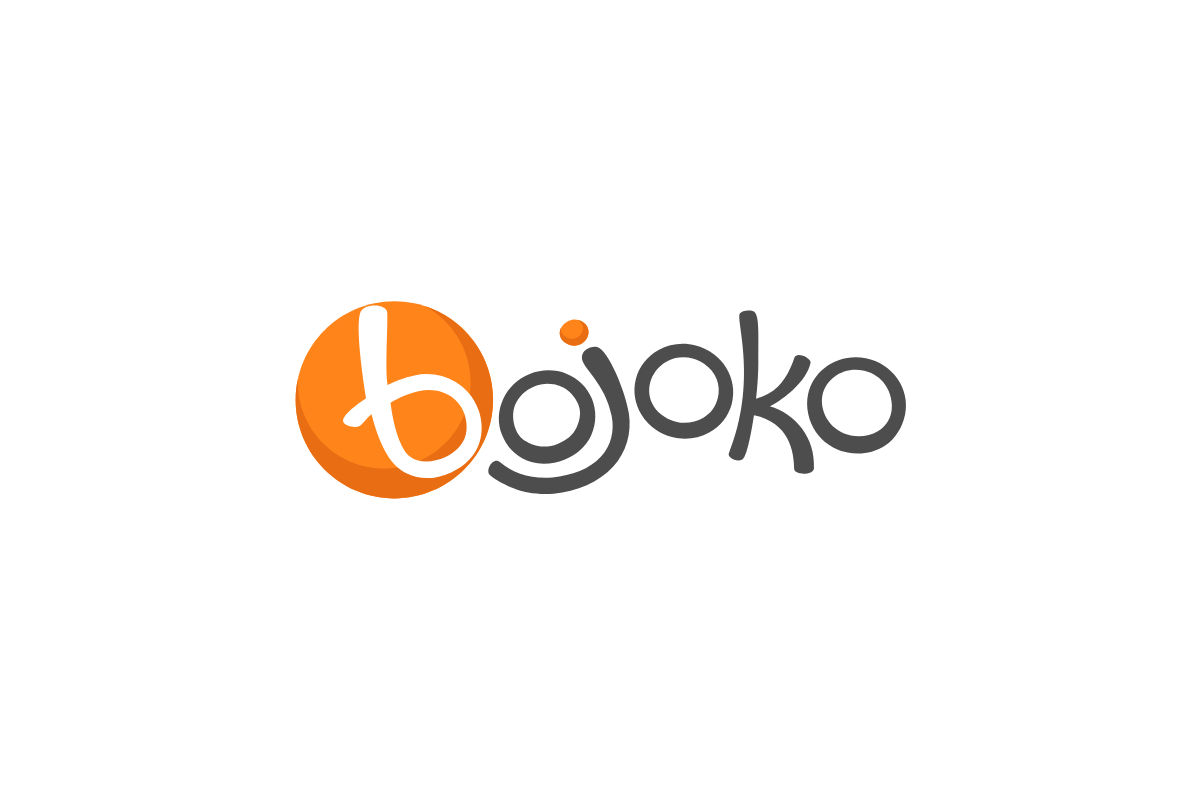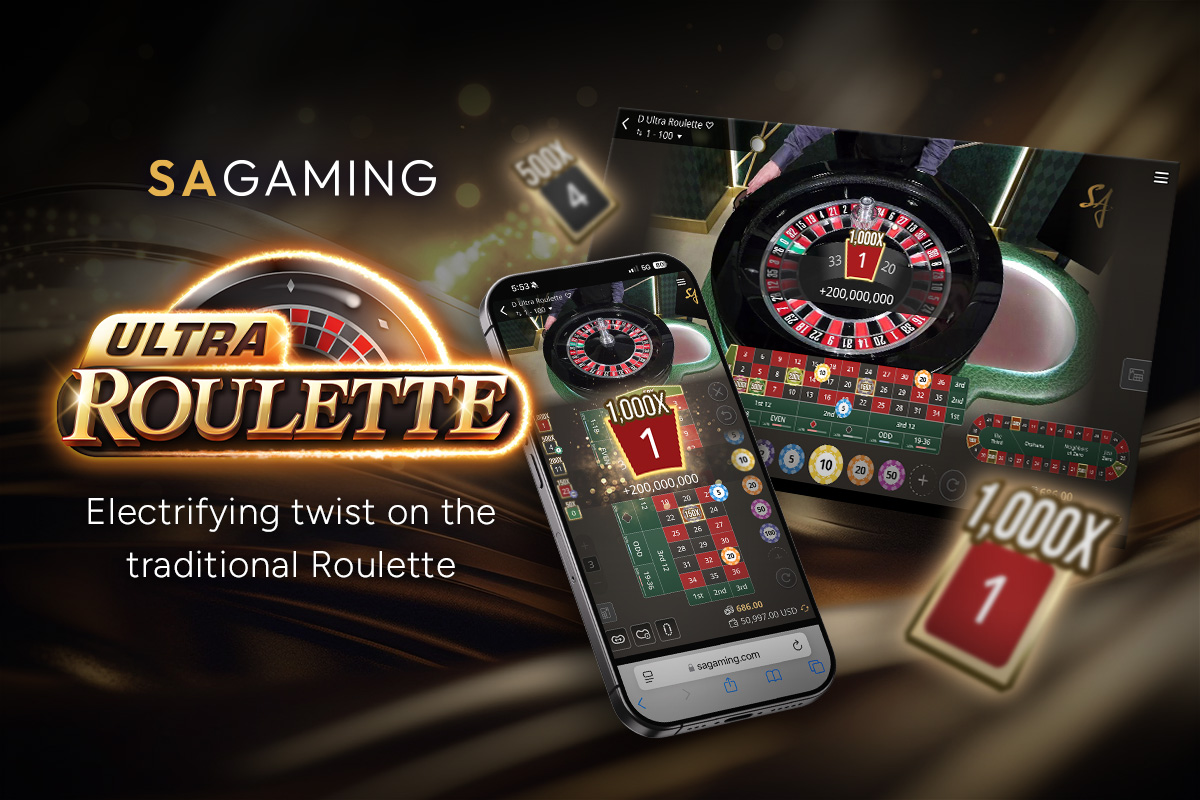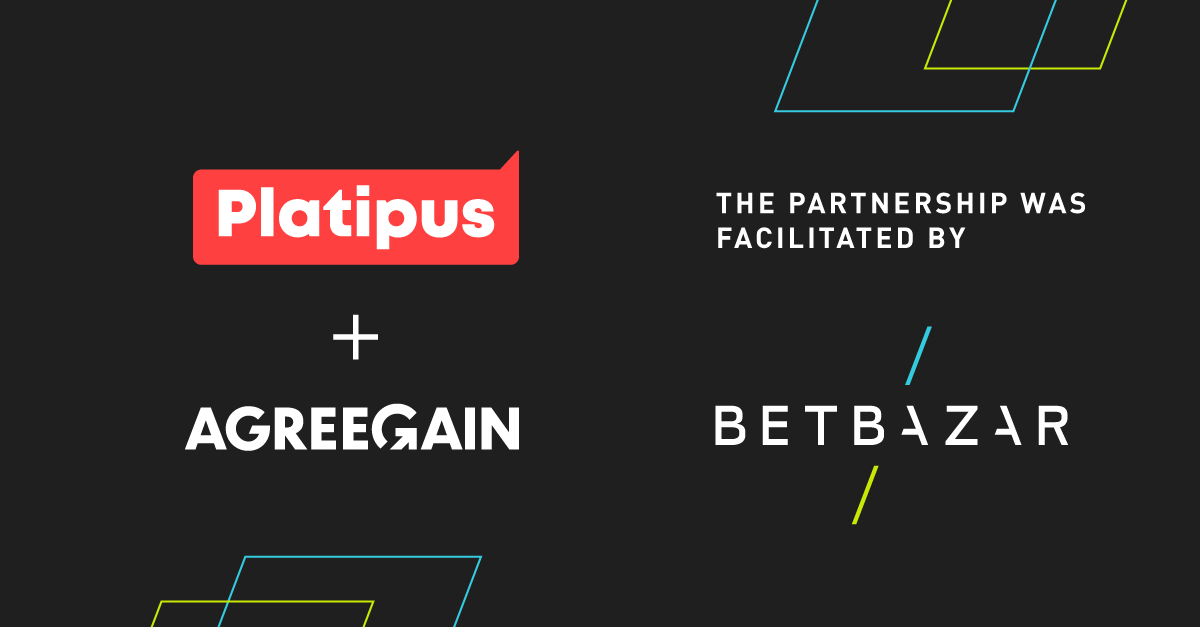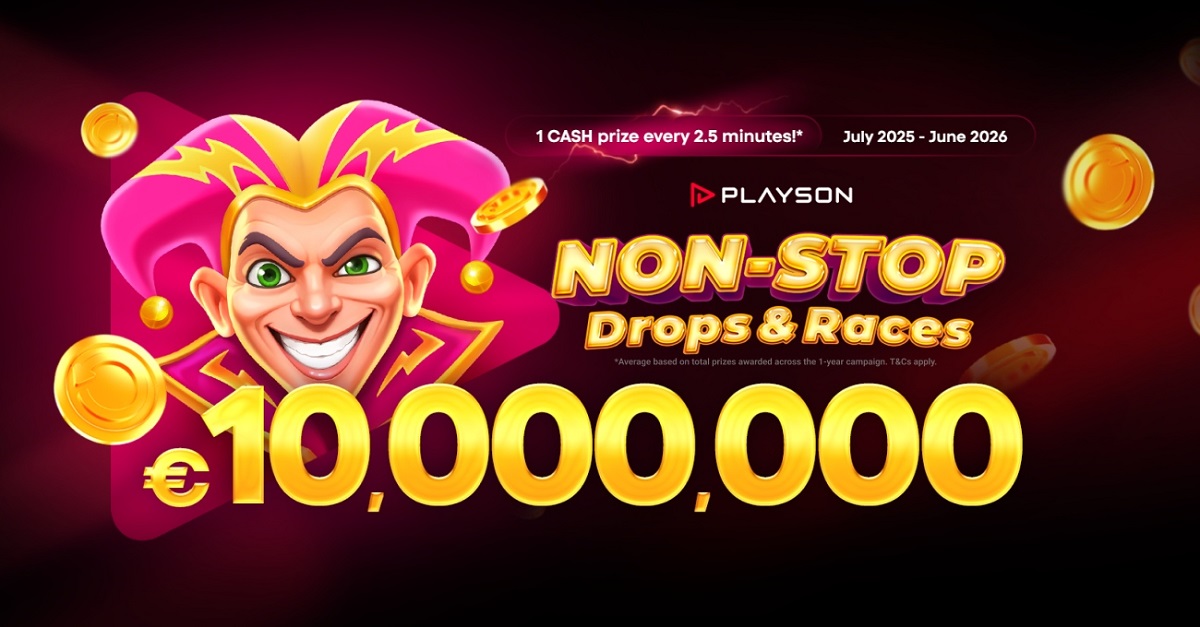European Gaming News
Interview with Dr. Mag. Klaus Christian Vögl
 Reading Time: 5 minutes
Reading Time: 5 minutes
Dr. Mag. Klaus Christian Vögl, the long-serving Managing Director of the Department of Leisure and Sports Facilities in the Vienna Chamber of Commerce, offers here his lucid opinions on gambling and betting legislation in Austria. He not just talks about the nitty-gritty of legislation, but clearly implies where the new legislation could lead the betting industry to.
He is critical of Austria’s legislators and regulator. He says some of the legislators want “simply to preserve and protect the acquis of monopoly companies (Austrian Lotteries, Casinos Austria)”. He talks positively about the way gambling legislation is changing in Europe, especially Central and Eastern Europe.
There is much more. Read on for an enlightening interview with one of the foremost legal experts in Europe.
Question
I’d first like to ask you to begin with a few words about yourself. It’s always nice to hear top-class professionals say a few words about themselves for our audience.
I´m Managing Director of the Department of Leisure and Sports Facilities in the Vienna Chamber of Commerce since 1981. Our specialist group looks after around 40 different branches, from tourist guides to dance schools and sports companies to the gambling and betting sector. The companies in the gambling monopoly sector are members of another division of the Chamber. Here in Austria, we have a statutory compulsory membership of all commercial enterprises in the Chamber of Commerce, which is around 600,000.
Question
Now on to betting laws in Austria. Protective can be a word used for the gambling legislation in the country. It is also somewhat unique in its distinction between betting and gambling. Your thoughts on this?
The distinction made by the Austrian Federal Constitution is indeed special. Gambling is a federal matter and essentially regulated in a monopoly, sports betting is a matter of the state and governed by various different state laws. In the betting area, there is (still) a free market regulated under very strict conditions, apart from Vienna. In Vienna the competent authority, due to political decisions, almost does not issue licenses although we have a brand new state law.
Question
The betting law varies from region to region in Austria. For instance, the betting law of Salzburg is different from that of Vienna. What about a uniform betting legislation throughout the country – like the gambling legislation?
In fact, the current government program plans to transfer the betting system into federal competence. In principle, nothing would be objectionable. For the providers operating throughout Austria, it could even be a great advantage and a simplification. However, we fear that the legislator and the stakeholders behind it could establish a monopoly or oligopoly, in order to eliminate the free market. As was accomplished concerning slot machines before in 2012.
Question
There have been reports about new amendments in the betting and gambling legislation, ranging from IP blocking for online betting to the operation of biometric recognition in slot apparatus and setting up of a Competence Center. How are these legal amendments going to affect the betting industry in the country? Is it going to be stricter?
We fear that the train will roll in the stricter direction. The planned changes in the gambling sector that you address are not yet affecting sports betting. Setting up biometric controls is not a problem for our industry in itself, even welcomed. What worries us most of all at the moment is the demonization of the betting terminals and, in Vienna in special, the legislators fight against betting exchange. Imagine: the whole country, the government and the whole of Europe is talking about digitization, and then we should get back to the bookmakers switch if possible. Whereas it anyway still exists.
Question
Isn’t the conservative approach to betting and gambling legislation a hindrance to the growth of betting and gambling industry in the country?
Absolutely, but that’s the political will of all political parties in Austria. The Chamber of Commerce is also in favour of strict framework conditions. The gambling and betting market does not have to grow at all, but it should be regulated in a consolidated way. This applies, for example, to the area of online gambling, which is totally ignored by our gambling law, or even online betting, for example, for which the Viennese authorities declare to be not responsible. Only in Salzburg you can apply for such a license concerning betting.
Question
The gaming world has been witnessing a massive change with the introduction of new software platforms, crypto currencies and generally smarter operators. How is Austria’s law faring against the changes?
Not at all, these areas are ignored and declared illegal by our regulator. The aim of the legislator is simply to preserve and protect the acquis of monopoly companies (Austrian Lotteries, Casinos Austria).
Question
What are the major challenges facing the formulation of betting and gambling legislation as a whole? There is a thin line separating the need for protecting the society from gambling addiction and the need for allowing the industry to grow economically. How do the legislators negotiate this inherent conflict of interests?
Legislators see, as far as private sector providers are concerned, exclusively the field of protection of players and minors. Economic considerations or argumentation with secure jobs go nowhere, and there is not even a willingness to talk in Vienna. In the federal states, the policy is sometimes more prudent. When, for example, in Vienna in 2014, the “small slot machine game” was turned off by the legislature, this brought many gastronomic businesses and of course also long-established vending machines companies in distress. We argued with a high number of jobs and a tax loss alone from the amusement tax of around 80 million Euros for the city of Vienna, per year. Then a politician in a leading medium said, “these jobs are worth nothing”. In such a view, unfortunately, every factual conversation is unnecessary. On the other hand, the protected monopoly sector is expected to grow, with regular sales and profit figures being published on a regular basis, pointing out the high social importance of gambling. That this is not EU-coherent, is evident.
Question
What are the chances of realizing a unified betting law for Europe, at least for online gambling and betting? A legal equivalent of Euro, that is.
The ball is clearly in the hands of the commission, which has been squandering on the “hot mush” for years. Even the Services Directive excluded the gambling sector. The chances are not good in the short term. In the medium term, the need to intervene regulatively cannot be ignored. We can only hope that this does not happen too restrictive, although with full respect for consumer protection, which is one of the declared main aims oft he EU.
Question
On to a more general question now. E-sports are gaining more recognition and exponential popularity. It may soon be drafted into the Olympics too. Do you see any legal hurdles for the further growth of E-sports?
As long as E-Sports remains skill-based, I do not see any problems, these are normal events. Should it be possible to make the area Olympic, that would be a milestone, because the sport is regulated more favourably than the game. It could also be legally betted on the outcome of e-sports events, which is currently not possible. It is important to observe whether e-sports is not abused for illegal gambling, there is a certain danger I see, and this would put the entire new business sector in the wrong light.
Question
Now the final question – a bit off-topic. You have had a chance to travel a lot owing to your official position. Could you please share some interesting experience during your travels?
It is interesting for me to learn, for example in the Prague meetings, that the countries of Central and Eastern Europe are wider than Austria in terms of realistic regulation of gambling. Unthinkable, for example, that official representatives of the Austrian Ministry of Finance would sit down with operators and ask: what can we do better? Our regulator always knows everything better on its own, even a public corporation like the Chamber of Commerce is only partially heard. Fascinating for me is in my travels, in what a short time Europe has grown together. You can really feel European today, and I do it with all my heart. I still experienced customs borders, the Berlin Wall, the Iron Curtain – an hour’s drive from Vienna. How far away is that today! And that’s good.
Source: European Gaming News

European Gaming News
Could the Gambling Commission ban wagering requirements?
Wagering requirements; whether you love them or hate them, with the Gambling Review well underway, there’s never been a better time to debate if they still have a place in modern gambling and whether the upcoming review will ban them once and for all. But first, let’s look at their development and why they are a contentious issue in the industry.
What are wagering requirements?
Wagering requirements are a common term and condition attached to a bonus that prevents players from taking a promotion and withdrawing it immediately. They are applied differently by each gambling brand. Some, like PlayOJO, Paddy Power, MrQ and Betfair, have revolutionised the casino scene by offering no wagering bonuses. In contrast, others take the predatory route and list bonuses with up to 100x requirements (the average is around 30x).
The requirement is the amount a player must wager at the casino before any winnings made with a bonus are valid for withdrawal. In the case of a £100 bonus, a 30x requirement would mean a player must wager a total of 100×30=£3,000 before they could withdraw any winnings. Most players would easily decimate their winnings before fulfilling the condition and, as most bonuses expire within 7-14 days, may well be forced to play for periods, or at times, they otherwise might not.
Why do wagering requirements exist?
In the early days of online casinos, bonus hunting among players became widely popular. It led to forums where players shared information on where and how to profit from the best welcome bonuses, earning money from the available offers available and never playing at a site again.
As casinos began to notice players taking bonuses and withdrawing without using them fairly, they combatted the practice with wagering requirements and other terms, such as the ability to withdraw a bonus and any winnings made if an account was suspect of this activity.
However, with no limits or official licensing rules to regulate wagering requirements at that time, things soon got out of hand as operators set high limits that were and still are unattainable to most players. Additionally, in many cases, the terms and conditions were not clearly displayed or explained, leading to the confiscation of bonuses and winnings without players understanding how or why they’d fallen foul of the casino’s rules.
Wagering requirements under fire with UKGC
By 2014, and following a flood of player complaints, the Gambling Commission weighed in, creating the Gambling (Licensing and Advertising) Act which prescribed operators were to advertise their bonus terms and conditions clearly and explain them to players. This led to some reducing their requirements to more feasible levels. However, not all operators followed suit, hence why we’re still discussing wagering requirements today.
More recently, in February 2022, the UKGC set its sights on reforming wagering requirements again, issuing new guidance regarding fair and transparent terms and practices, which acknowledged that wagering requirements could lead to excessive play, not in line with social responsibility rules for operators.
The new guidance rules cited that licensees used potentially unfair terms, with examples including:
- “terms that allow licensees to confiscate customers’ un-staked deposits
- terms regarding treatment of customers’ funds where a licensee believes there has been illegal, irregular or fraudulent play
- promotions for online games that have terms entitling a licensee to void real money winnings if a customer inadvertently breaks staking rules
- terms that unfairly permit licensees to reduce potential winnings on open bets.”
It also stated that the Commission was aware of:
- “terms and conditions that are difficult to understand
- welcome bonus offers and wagering requirements which may encourage excessive play.”
While the guidance did not contain rules for abolishing or limiting wagering requirements, they instructed licensees to review their terms and conditions to ensure they fit consumer protection laws and that; “The LCCP requires rewards and bonuses to be constructed in a way that is socially responsible. Although it is common practice to attach terms and conditions to bonus offers, the Commission does not expect conditions, such as wagering requirements, to encourage excessive play.”
Will wagering requirements be banned?
With the Gambling Review white paper currently overdue and keenly expected by all industry stakeholders, many wonder if it will cover wagering requirements or, more specifically, exclude them from casino practice. The Gambling Review aims to update the 2005 Gambling Act, fit for the modern age, and wagering requirements would undoubtedly slot into the remit of what’s being discussed, which includes greater player protections and affordability checks.
While it’s clear that some big-name operators and affiliates like No Wagering are pioneering the way in bringing zero wagering bonuses to players, many sites have not followed suit. This is despite clear evidence that players favour fairer bonuses (PlayOJO is one of 39 brands operated by the same parent company, it is the only one with zero requirements, and it’s the most successful of all, according to the company).
Realistically, we’re not sure that the new gambling regulations will ban wagering requirements completely (as we covered earlier, they do exist for a reason), but it certainly wouldn’t be beyond the imagination for there to be a maximum cap applied in the view that excessive requirements equate to excessive play.
What’s next for operators and bonuses if wagering requirements are banned?
Bonuses are one of the most important factors for players in picking between casino sites, and they make players feel lucky to score something for free straight off the bat (even if the wagering requirements mean this is not really the case).
If wagering requirements are banned, operators unwilling to offer bonuses without wagering requirements will have to return to the drawing board and reimagine rewards, especially welcome offers. Alternatively, they could begin competing based on other USPs, such as focusing more on the casino product to pull in the punters by offering unique games, making space for indie developers, having instant withdrawals, or gamified loyalty benefits and better loyalty clubs.
Moreover, it would present a fantastic opportunity for remote operators to move away from the tired system of matched deposit bonuses towards more exciting and fresher ideas like promo wheel spins, mystery gifts on first deposits, prize draws and so on. With brands including PlayOJO, Paddy Power, MrQ and Betfair already doing this, operators do not lack a blueprint to success, just the gumption to embrace a new model.
Bulgaria
Betway Bulgaria officially launches, offers live and bet-builder options
Another company has officially launched its activities in the growing niche of online betting in Bulgaria. But here we are not just talking about another operator licensed by national institutions, but about a leading brand worldwide. Betway is one of the largest bookmakers in Europe and globally, and the fact that it already offers its services in Bulgaria speaks positively about the development of the gambling business in the country.
Indications of an increase in the size of the industry appeared last year, when several operators received a permit to operate under Bulgarian jurisdiction. It is unlikely that this process will end with the official launch of betway bulgaria, rather the brand entering the country can be perceived by international operators as a positive assessment of the market in Bulgaria. What can we find at Betway besides the obvious – increased competition and of course more choice for consumers?
What do we find in the sports section?
Sports betting – this is the leading sector of the company, which started operations in 2006. The brand is associated with a number of teams in Europe such as Tottenham, Atletico Madrid, Leicester, Alaves, Belenenses, Werder, etc. Of course, the top championships in Europe are present in the latest betting platform, but that’s not all. Betway offers the opportunity to make predictions at less popular UEFA championships. The fans of the Bulgarian championship have options too. All matches of the First League are present in the bookmaker’s menu, and are offered with dozens of choices for each of them.
Real-time bets and long-term combinations
Live bets are a big thrill for many players. This option is present at Betway, and this also applies to the mobile version, of course. It is not difficult to detect current events – they come first when loading the platform. And with them the bookmaker really comes up with interesting offers, some of which are rare on the Bulgarian market. The outcome of the bets become clear in literally seconds if the next goal market or one of the performance options is selected.
In addition, the company accepts predictions with a much longer horizon. It is now standard to bet on who will be the champion in England, Spain, Italy or Germany. However, there are also specific markets and selections for certain teams – will Barcelona take the trophy this season, will Liverpool reach the final in at least one of the tournaments in which it participates, etc. And if users don’t find what they’re looking for in these offers, they can always turn to the betting menu. The bet-builder is still limited to one match, from which we can choose two or more selections until the desired odds are formed. This is the most appropriate way to optimize the bet according to personal preferences and therefore it is increasingly preferred by the players.
Betway’s first steps on the Bulgarian market are impressive. And this is just the beginning, we can expect even more in the near future.
European Gaming News
EveryMatrix inks RGS Matrix agreement with Wild Boars
EveryMatrix announces the second RGS Matrix partnership with Wild Boars, newly launched gaming studio that aims to bring creative storytelling and a fresh feel to the gaming industry.
Launched in 2019 as EveryMatrix sixth standalone solution, RGS Matrix enables gaming development teams to distribute, manage, and report upon a proprietary game product portfolio.
This ‘out of the box’ remote gaming server was built on an open architecture and caters for outstanding player experience, consistent deployment, and quicker content integration.
Mathias Larsson, Managing Director of RGS Matrix, says: “This is our second RGS Matrix agreement and it brings me a lot of joy to know that our solution starts gaining momentum in the market. Our remote gaming server aims to help the new generation of game builders by providing all the means to create, design, distribute and manage games.
“The team of Wild Boars is experienced, skilled and highly creative. I am looking forward to seeing their games live and appreciated by players in many countries.”
Oleksandr Yermolaiev, Managing Director of Wild Boars, comments: “We truly believe that choosing a right partner is crucial for success. For us, RGS Matrix and its remarkable team is just that partner. We are excited to use EveryMatrix solution, focus on what we do best and bring our innovative games to a wide range of operators, territories and players. RGS Matrix is dashing ahead and we are happy to join the ride.”
RGS Matrix powers slots and table games, and is currently certified for Malta, Latvia, Lithuania, Estonia, Sweden, Spain, Denmark, Romania, and Colombia, with many jurisdictions to come in the upcoming years.
-

 Latest News3 months ago
Latest News3 months agoExclusive Q&A With Bar Konson, Chief Business Development Officer at NuxGame
-

 Latest News2 months ago
Latest News2 months agoWeek 17/2025 slot games releases
-

 Latest News2 months ago
Latest News2 months agoFortuna Partners with 2025 UEFA Under-21 EURO
-
Latest News3 months ago
Esports World Cup Foundation Confirms Full Game Lineup, Schedule, and Club Championship Rules for EWC 2025
-

 Latest News2 months ago
Latest News2 months agoELA Games Receives Key Nomination at EGR Marketing & Innovation Awards
-
Latest News3 months ago
DreamPlay consolidates its status as a global player in the iGaming industry and opens an office and campus in Cyprus
-
Latest News3 months ago
ACR POKER’S NEXT HIGH STAKES ADVENTURE TAKES PLAYERS TO MONTENEGRO FOR PRESTIGIOUS SUPER HIGH ROLLER SERIES
-

 Latest News2 months ago
Latest News2 months agoBojoko.com Surpasses €100 Million in All-Time Deposits Milestone




















You must be logged in to post a comment Login